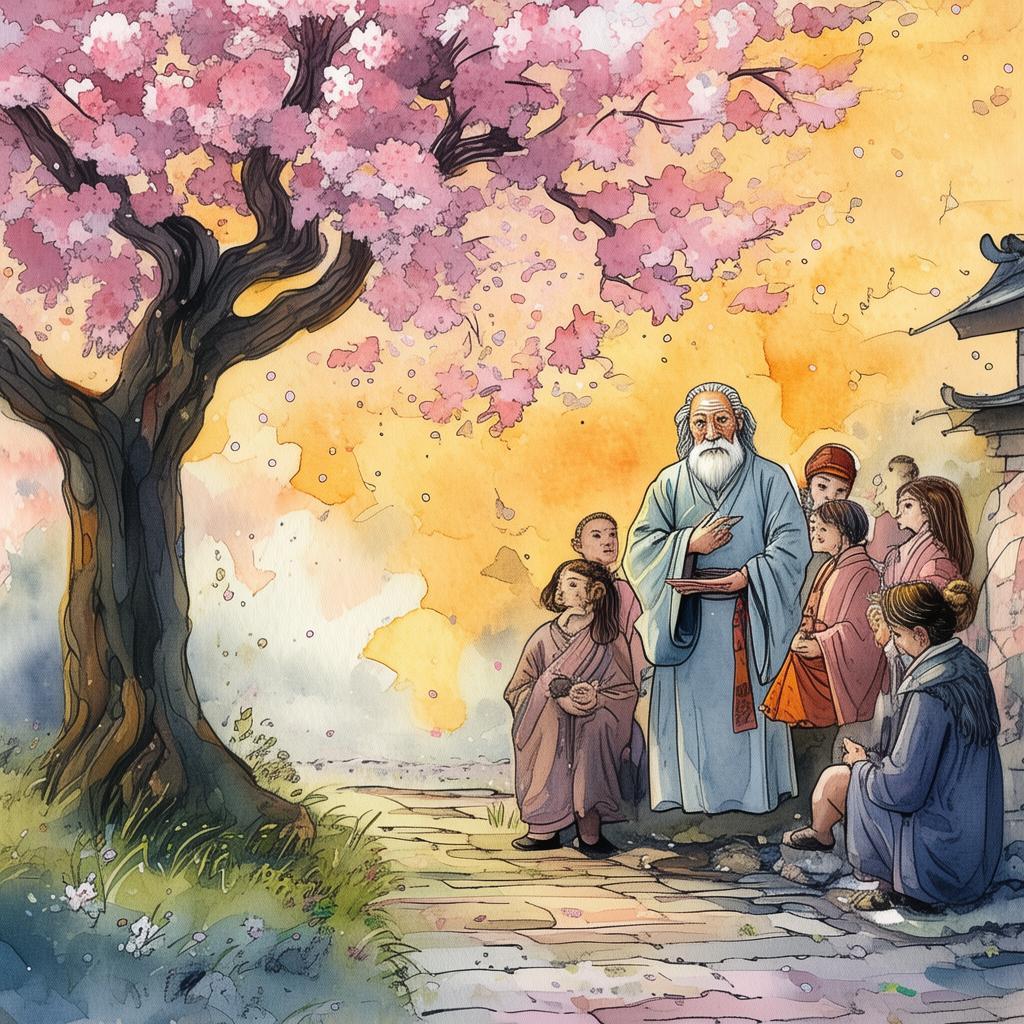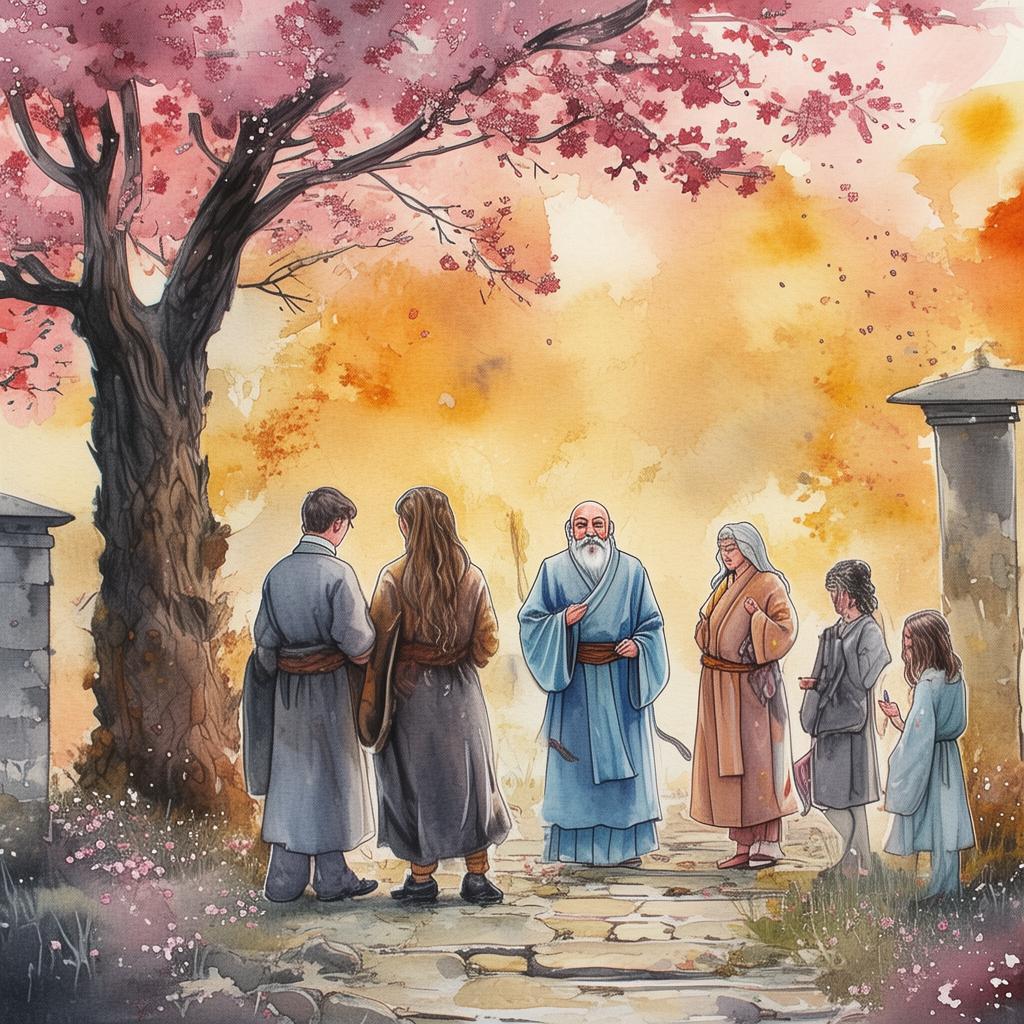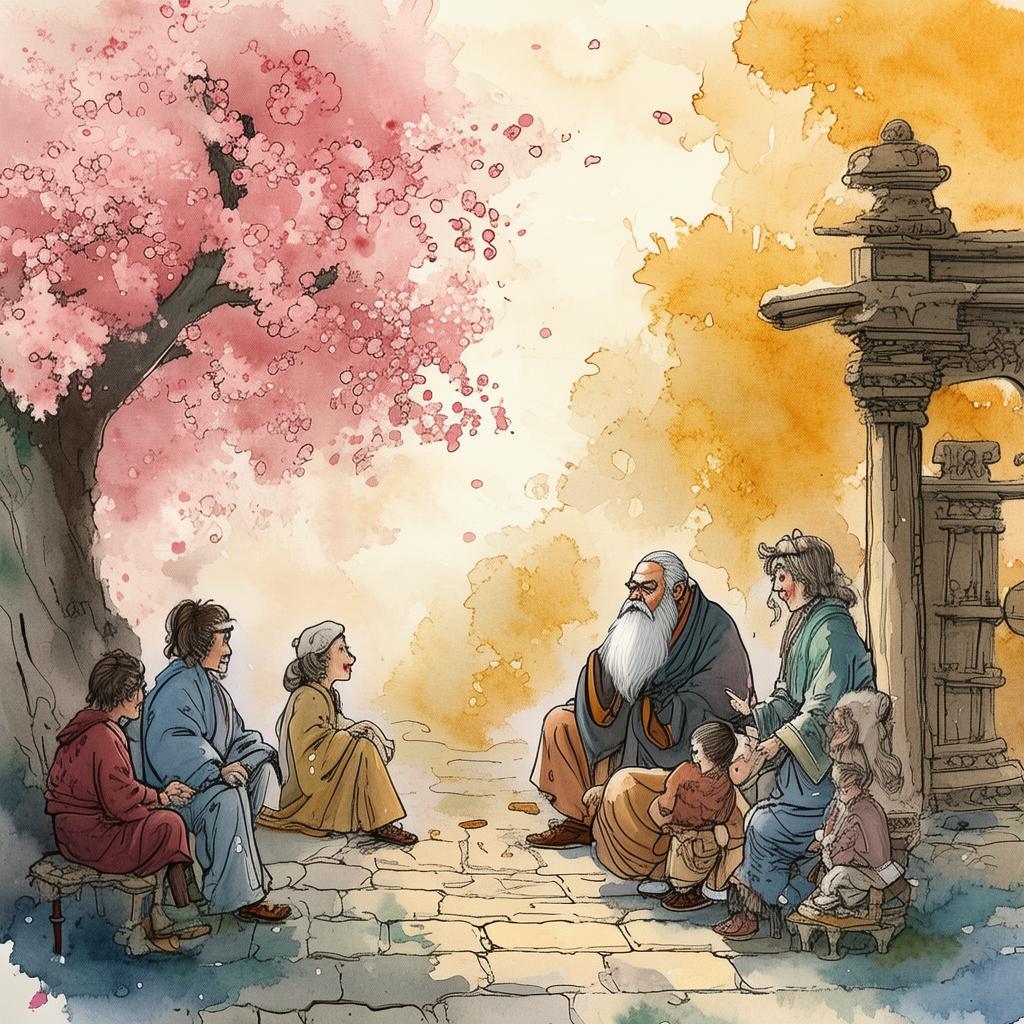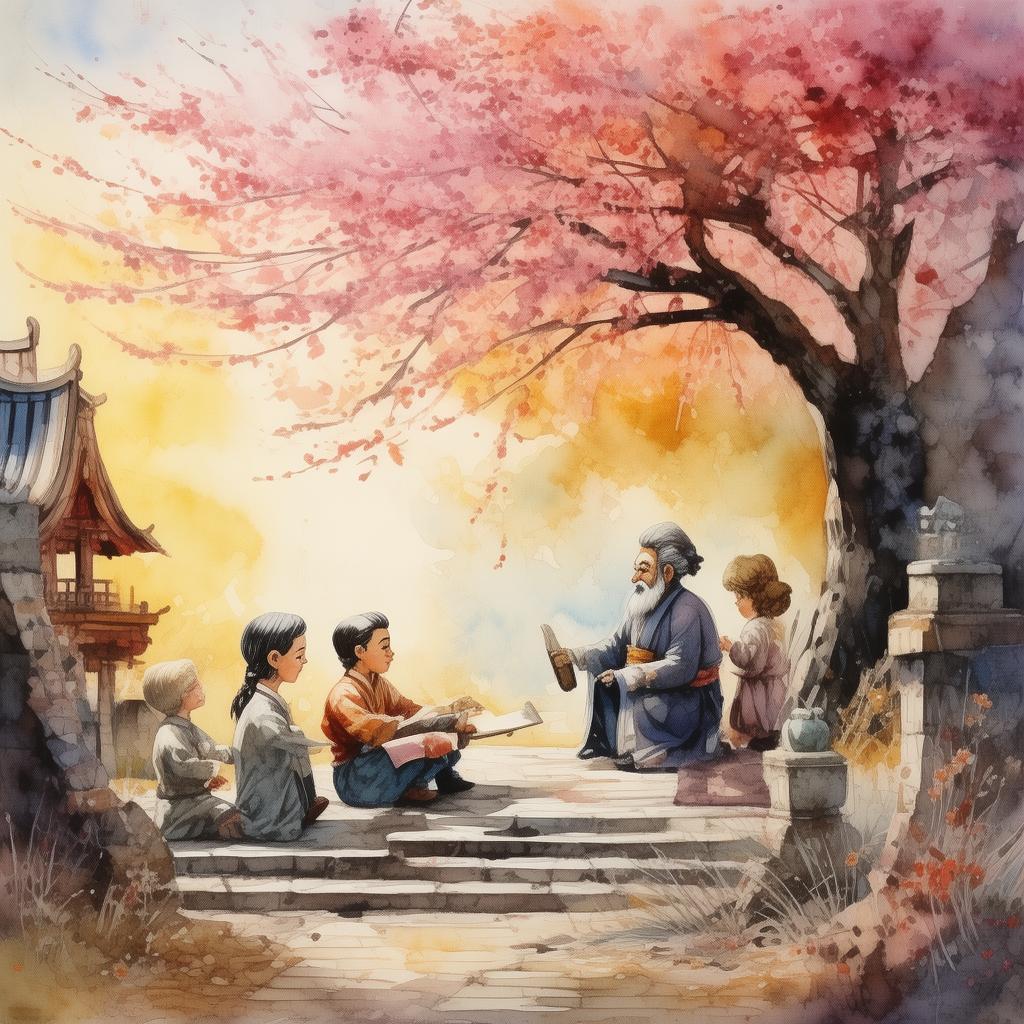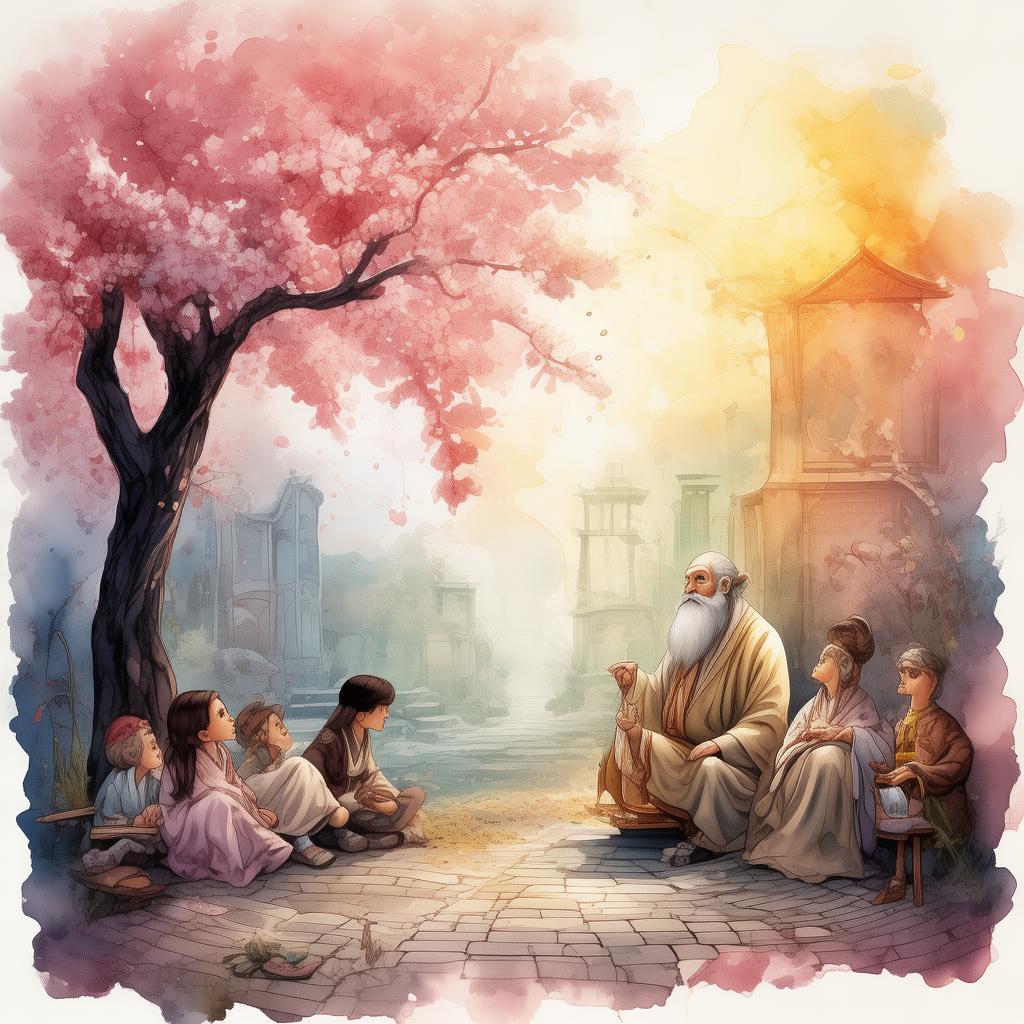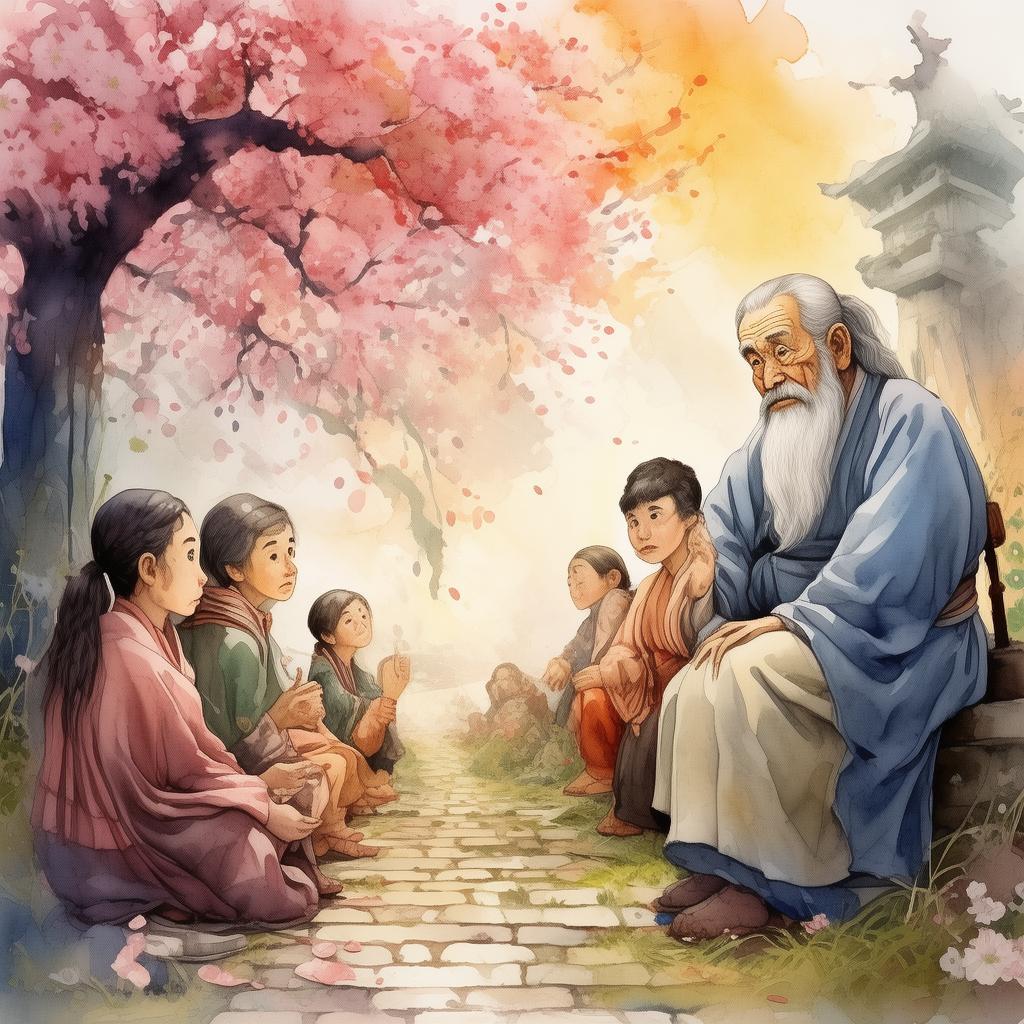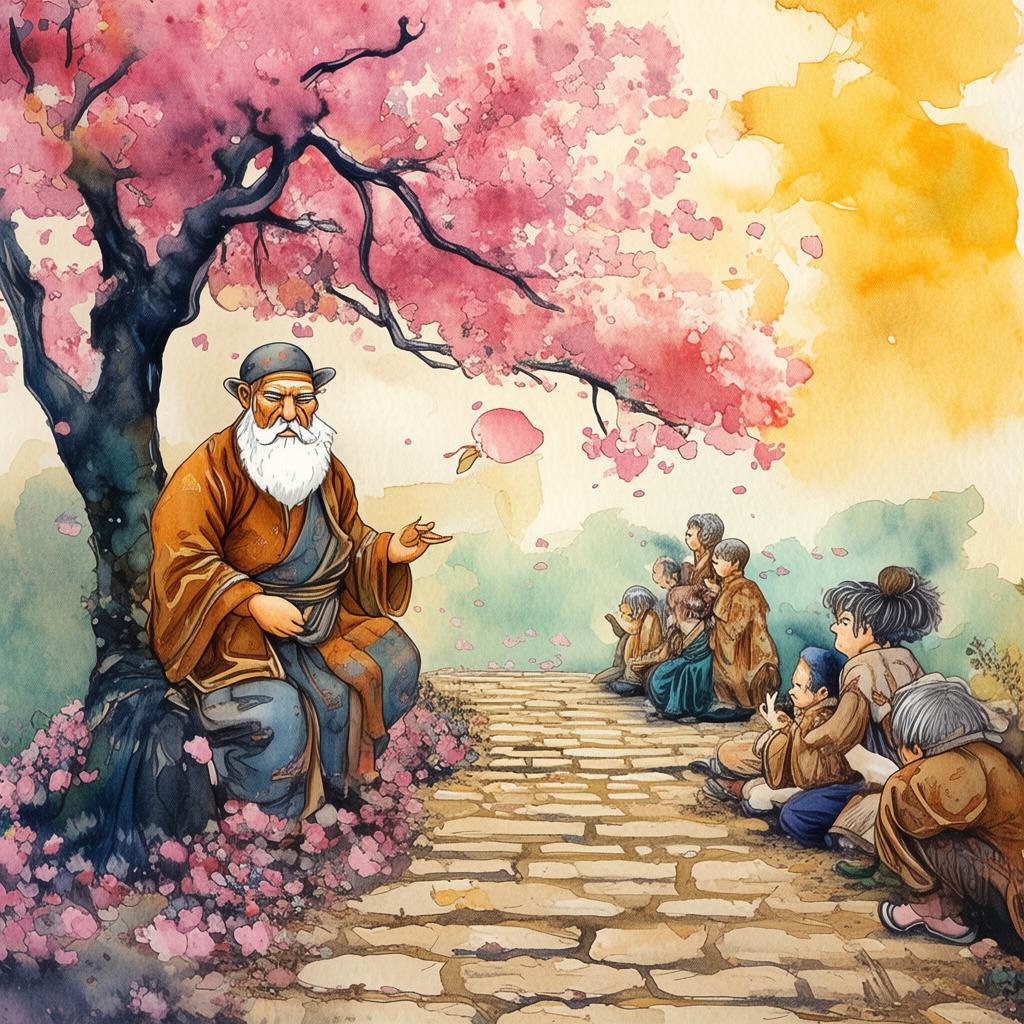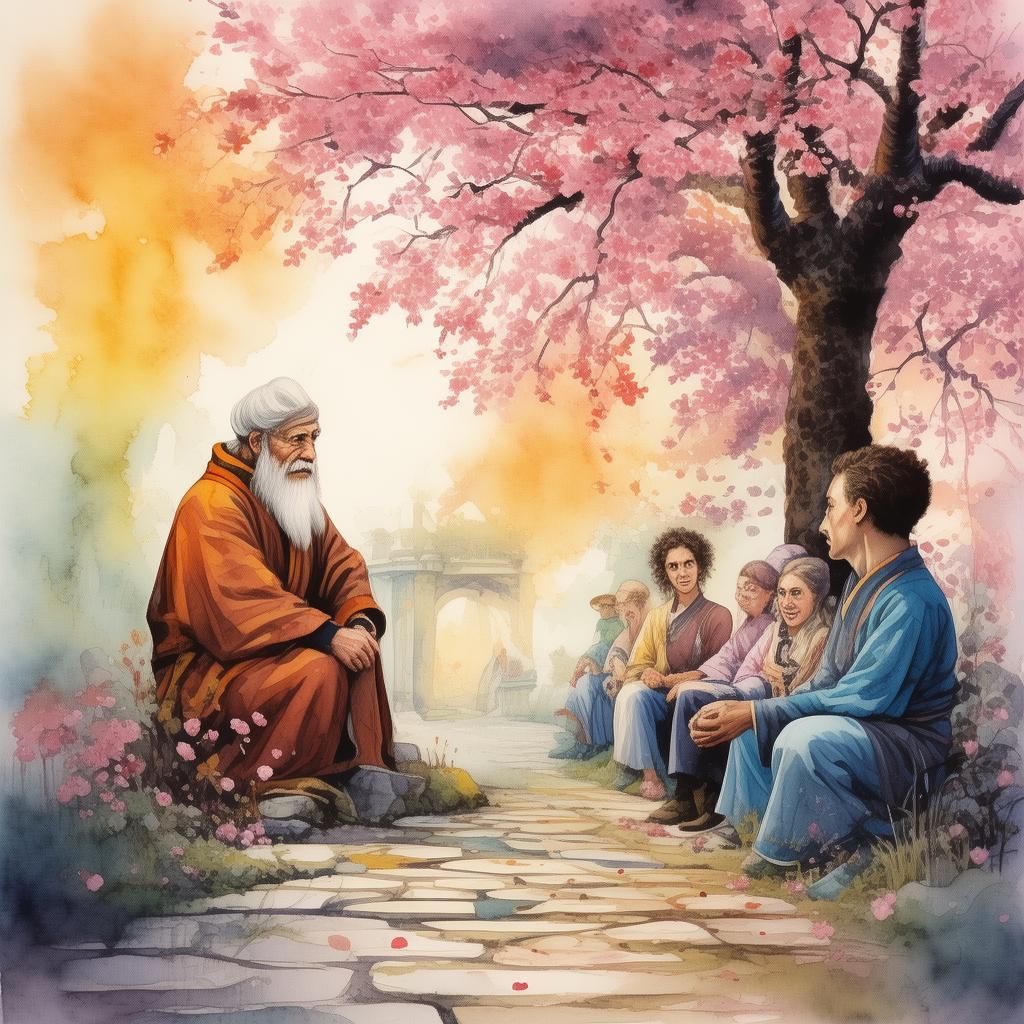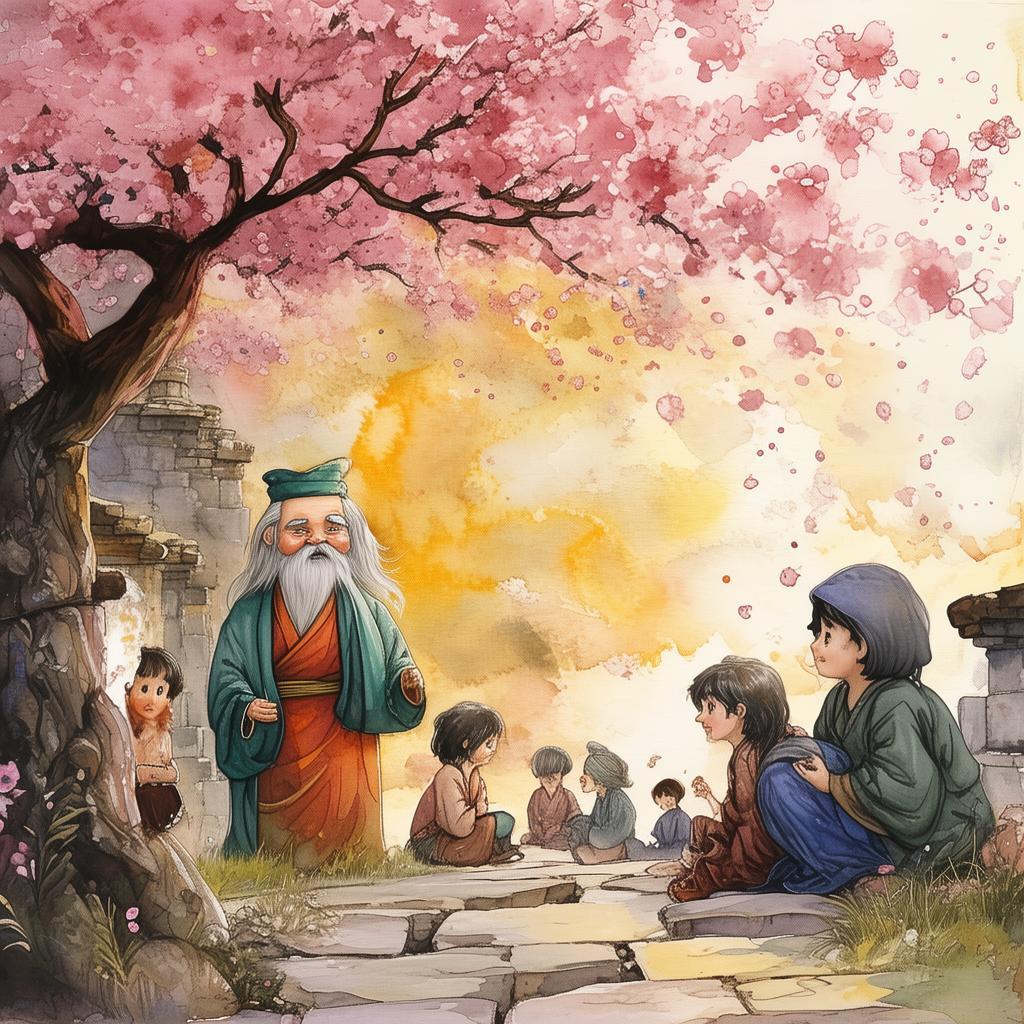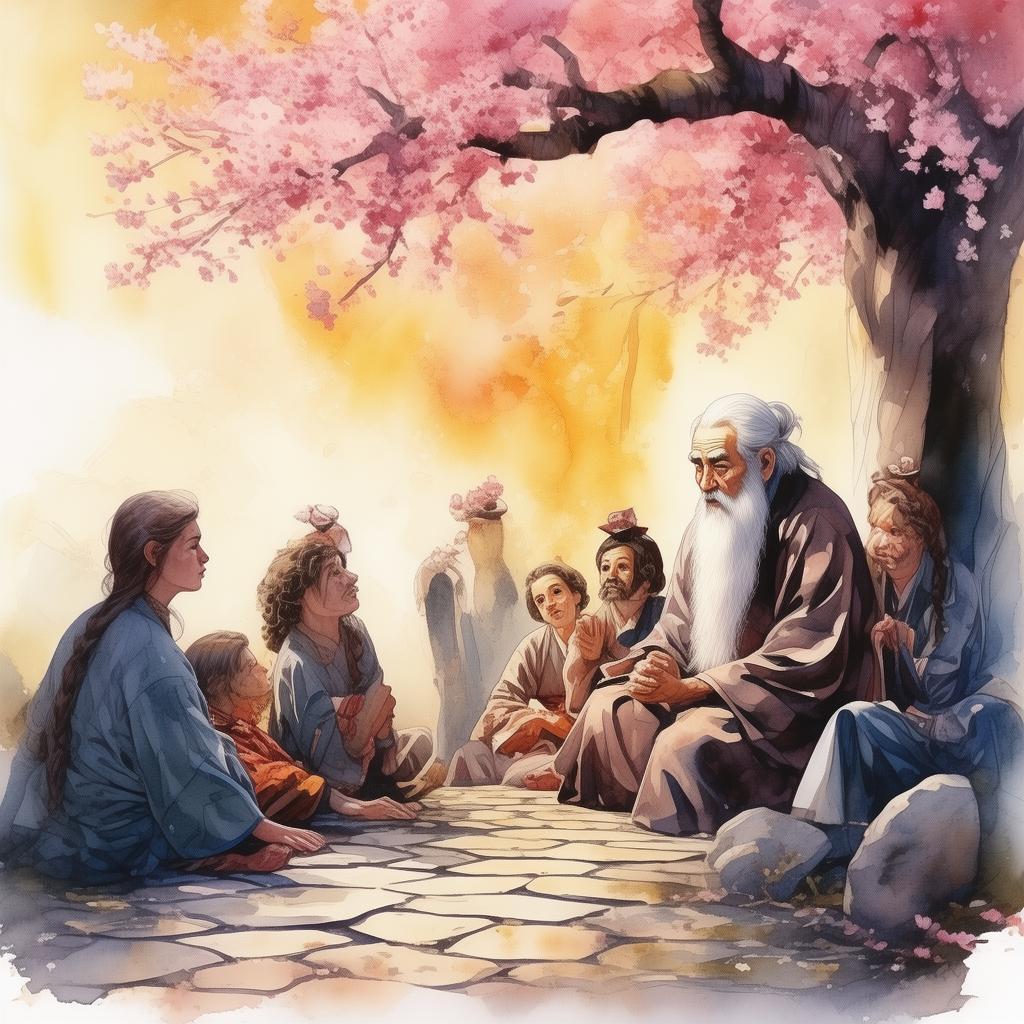The Parable of the Pen and the Parchment
In the heart of the Idiomatic Empire, where proverbs were the bedrock of law and governance, there reigned a king whose decrees were couched in the most profound of sayings. His court was filled with scribes, tasked with the monumental job of inscribing these proverbs upon the parchment that would one day form the scrolls of justice and governance. Among them was a young scribe named Li, whose fingers danced upon the parchment with the grace of a seasoned artist.
Li was not like the others. While his colleagues spent their days memorizing and copying proverbs without question, Li saw beyond the words. He believed that behind each saying lay the complexities of human nature and the nuances of power. He longed to understand the true nature of wisdom, and he dared to ask questions.
One day, the king summoned Li to his chamber. "You are to transcribe my latest edict," the king commanded. Li’s heart raced with anticipation. This edict, it was said, would reshape the kingdom’s fate.
The king spoke, his voice a blend of power and the weight of ancient wisdom, "Let it be known to all under my reign that the pen is mightier than the sword."
Li listened intently, his mind racing with questions. What did it mean for the kingdom? Would the pen truly be able to quell the rebellions that threatened its borders?
As Li began to write, he pondered the king’s words. He transcribed not just the words but also the power behind them. Yet, as he finished, a thought occurred to him. "Sire," he asked, "does the pen have the might to create, or only to record the acts of others?"
The king looked at Li with a mix of surprise and respect. "It is your duty to record," he replied, "but remember, the pen has the might to shape the narrative, to define history."
Li nodded, but his mind was elsewhere. He sought to understand the true nature of the pen’s might, and to do so, he embarked on a journey.
He traveled to the kingdom’s border, where the pen and the sword clashed in fierce battles. He spoke with soldiers who had wielded both, and he learned that the pen had the might to inspire, to persuade, and to unite.
Li journeyed to the royal libraries, where scrolls of wisdom were meticulously preserved. He found that the pen had the might to teach, to enlighten, and to inspire future generations.
Yet, in his travels, Li also encountered the dark side of the pen. He saw it wielded by dictators who used proverbs as weapons to suppress dissent and control the populace. He saw the pen’s might to deceive, to manipulate, and to divide.
Li’s journey brought him back to the capital, where he sought counsel from the king once more. "Sire," he said, "I have seen the pen’s might to create and to destroy, to inspire and to suppress. But what is its true power?"
The king pondered for a moment before replying, "The pen’s true might lies not in its ability to write, but in its ability to reflect the human heart. It can be used to cast light upon the darkness, or to cast shadows over the truth."
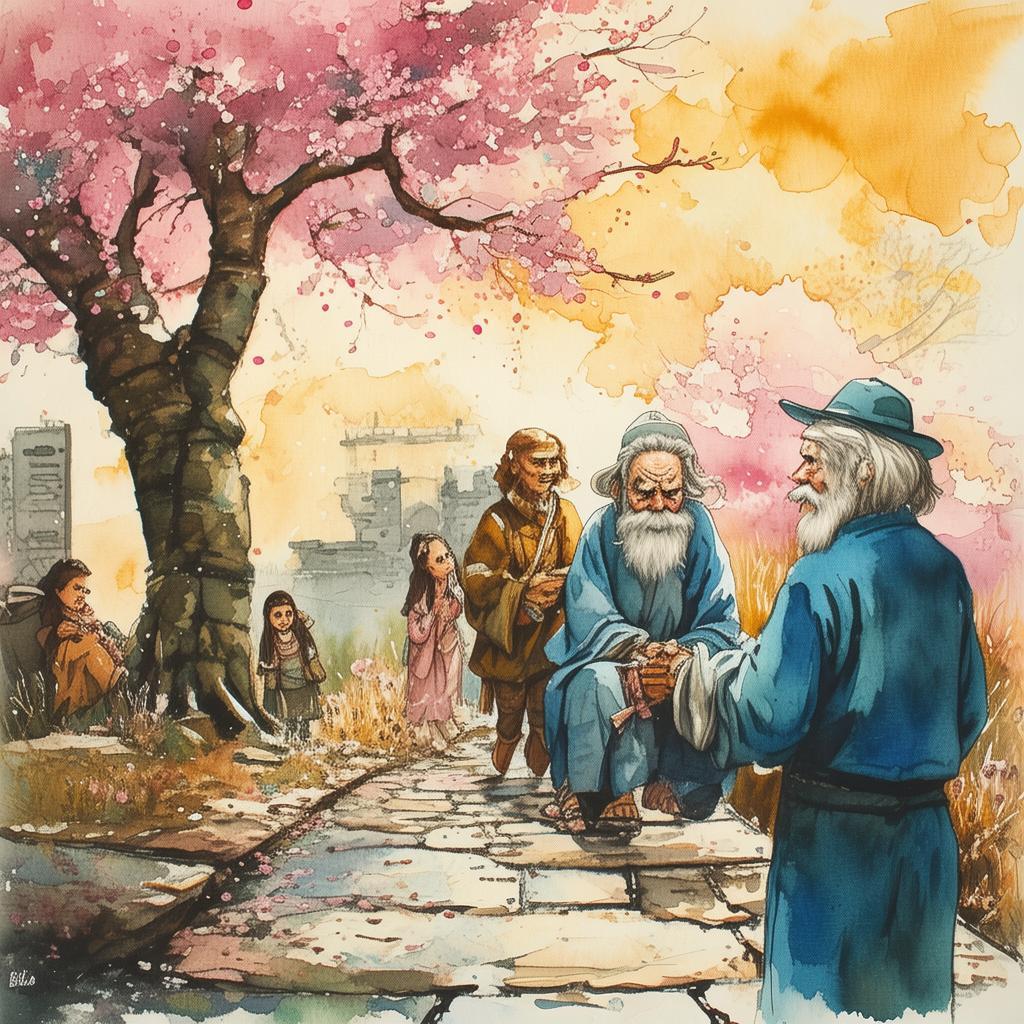
Li understood then. The pen’s might was not absolute, but relative to the one who wielded it. It was a tool that could be used for good or for ill, for enlightenment or for deception.
As Li returned to his scribing, he approached his task with a newfound respect for the power of his words. He inscribed each proverb with not just the king’s authority, but with his own understanding. He became the keeper of the kingdom’s narrative, the one who would decide which stories would be told, and which would be forgotten.
The Idiomatic Empire continued to thrive, and Li’s name was spoken with reverence. He had not only transcribed proverbs but had also become a living example of the pen’s true might. In the end, Li’s story became a proverb itself, a tale of wisdom, power, and the eternal dance between the pen and the parchment.
✨ Original Statement ✨
All articles published on this website (including but not limited to text, images, videos, and other content) are original or authorized for reposting and are protected by relevant laws. Without the explicit written permission of this website, no individual or organization may copy, modify, repost, or use the content for commercial purposes.
If you need to quote or cooperate, please contact this site for authorization. We reserve the right to pursue legal responsibility for any unauthorized use.
Hereby declared.
